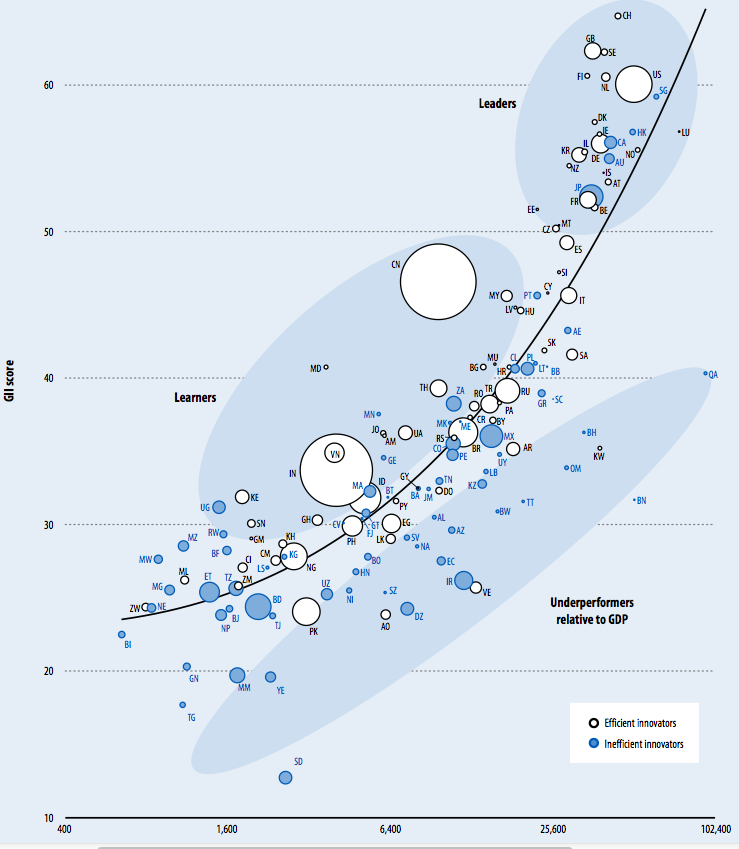After two complacent decades Australia’s pivot away from a mining and housing based economy is promising to painful. In anticipation of the punishment to come, the nation’s political and business leaders have devised a safe word they hope will ease the pain — innovation.
That safe word was desperately repeated as a group of “innovation rock stars” gathered last week at Sydney’s Knowledge Nation summit, billed as bringing together the nation’s leaders to drive the implementation of the Australian Government’s National Innovation and Science Agenda.
Knowledge Nation showed that despite having a safe word Australia’s Anglo-Saxon, male dominated elites aren’t prepared for an economic pivot and true change in the nation will have to be a grass roots movement led by small business and community groups.
A lack of diversity
Notable in the selection of “key leaders from the innovation, science and technology ecosystem, including entrepreneurs, business leaders, investors, researchers and scientists, and policymakers” was the lack of diversity.
A look of the speaker list showed only four of the fifteen speakers being women and only one of the 15 not being from an Anglo-Saxon background.
One of the baffling things about modern Australian is the how few from non-Anglo groups feature among the ranks of the business, politics or media leaders. Yet Australia’s greatest success has been in integrating the successive immigration waves over the late Twentieth Century.
A visitor to Australia could be forgiven for not noticing the country’s diverse population as the media, politics and business is dominated by those of British heritage. For the country, this is a tragic wasted opportunity and was reflected in the line up of ‘innovation rockstars.’
Disjointed government
The political ‘leadership’ also reflected that lack of diversity with three Federal government ministers — all men and no opposition, state or local figures — lined up to recite the grab bag of thought bubbles that are what now passes as policy in Australian government.
Ministers offered succession of turgid recitals of disjointed programs which do little to address Australia’s structural barriers towards innovative businesses or the wholesale defunding of education institutions although the Innovation Minister’s snarling response to an academic’s question about R&D spending told much about their defensive posture.
The political ‘leaders’ illustrated a key problem in the nation’s pivot. The long term failure of consistent planning across portfolios means no Australian investor, entreprenuer or student can have any confidence in government policies over a five or ten year horizon when policies barely survive one ministerial thought bubble.
Overall though the biggest gap in the Knowledge Nation summit was its focus on government — the real weakness however lies in the corporate sector where inward facing service industries are distributing more on dividends than in research and development.
Inward focus
That inward focus, articulated well by Freelancer.com CEO Matt Barrie who described how almost all of the nation’s twenty biggest corporations are domestically focused service businesses, is the real problem facing Australia as it tries to pivot its economy away from being dependent on the fading Chinese commodities boom and domestic property speculation.
A lack of globally competitive businesses leaves the nation exposed as most employment is in organisations that are unable to survive outside a relatively protected domestic market. It also means these companies don’t see the need to invest in research and development as their fat profits are dependent upon market dominance rather than innovative products and services.
Barrie also had the only challenging idea in a day that promised many of them, the somewhat tired trope of abolishing Australian state governments.
Government focus
It’s quite touching that Barrie sees Australian Federal governments as being havens of intelligent, long term policy making when all the data indicates otherwise. The very idea of Canberra running education given its flip flopping on the Gonski reforms, confused policies on university funding and ideological obsession with funding elite private schools is, quite frankly, derisory.
That the most challenging idea out of the day was the old chestnut of flattening Australian government speaks volumes of the dearth of original thinking coming out of the nation’s business and political leadership.
In truth, Australian business needs to be snapped out of its inward rent seeking focus while the household sector needs to be weaned off speculating on residential property. These require real policy reform and cultural change.
Little leadership
Knowledge Nation showed there no understanding, let alone no appetite for that reform or change from Australia’s elites and as the Australian economy starts to feel the pain from twenty years of complacency we can expect the safe word of ‘innovation’ to be increasingly used by the nation’s elites.
The lesson from Knowledge Nation is Australia’s economic pivot will come from the grassroots. It will be startups, small businesses, community groups and local governments that will lead the change. Australians waiting for government support and corporate leadership will be waiting a long time.
In meantime, squealing ‘innovation’ at every sign of economic pain will be occupying much of the time of Australia’s comfortable Anglo elites.
Similar posts:




